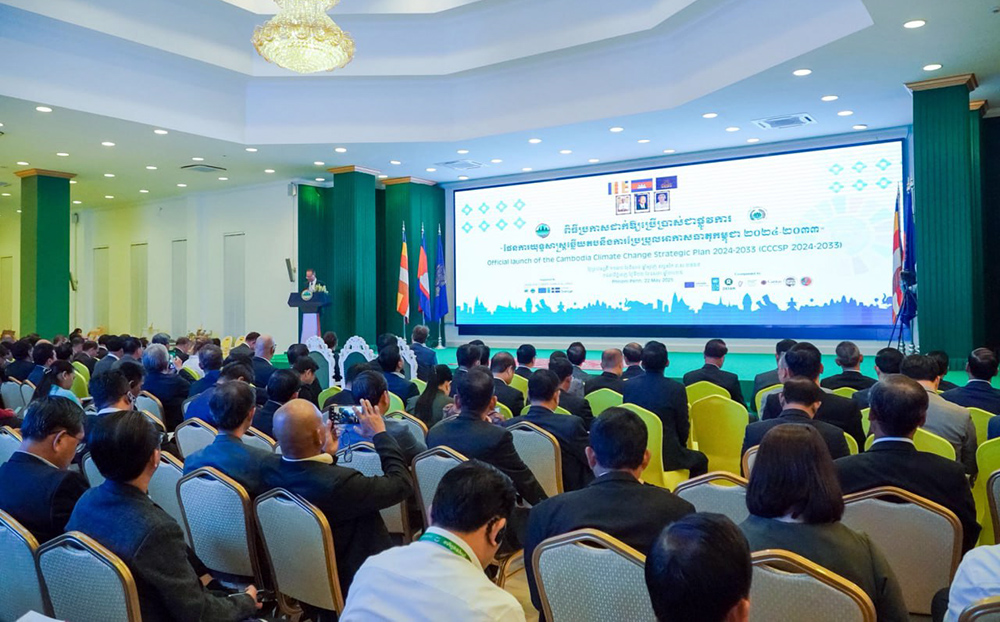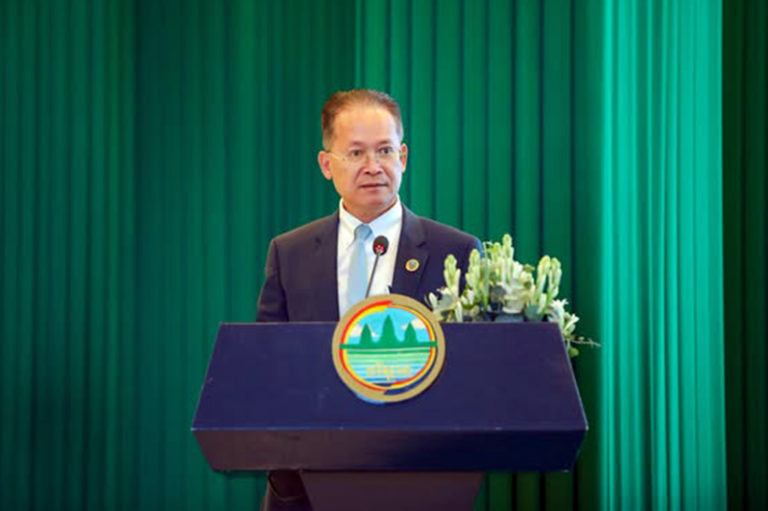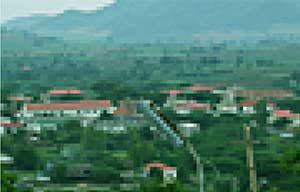The Ministry of Environment officially launched the Cambodia Climate Change Strategic Plan 2024–2033 (CCCSP 2024–2033) during a ceremony held in Phnom Penh on May 22.
The launch was presided over by H.E. Dr. Eang Sophalleth, Minister of Environment and Chairman of the National Council for Sustainable Development, and attended by H.E. Igor Driesmans, EU Ambassador to Cambodia, and Ms. Alissar Chaker, Resident Representative of the United Nations Development Programme (UNDP) in Cambodia, as well as representatives of relevant ministries and institutions, sub-national administrations, school establishments, private sector and many other distinguished guests.
According to H.E. Sum Thy, Director General of the General Directorate of Policy and Strategy at the Ministry of Environment, the CCCSP 2024–2033 prioritises the reduction of greenhouse gas emissions, strengthening climate change adaptation capacity, promoting good governance, and advancing digital transformation.
In his keynote address, H.E. Dr. Eang Sophalleth underscored the significance of the CCCSP as a pivotal policy framework to guide Cambodia toward carbon neutrality by 2050. He emphasised the importance of coordinated action across all sectors to ensure effective implementation of the plan. Priority areas for immediate emission reductions include the energy sector, industrial processes and product use, forestry and agricultural land use, and waste management.
UNDP Resident Representative Ms. Alissar Chaker highlighted the CCCSP 2024–2033 as more than a policy document—it is a shared roadmap toward Cambodia’s climate vision to “achieve carbon neutrality and climate resilience for an inclusive and sustainable development” by creating a national framework to reduce emissions, enhance resilience, and improve climate governance for societal, environmental, and economic well-being.
Ambassador H.E. Igor Driesmans reiterated the EU’s commitment to supporting green finance initiatives in Cambodia. He noted plans to mobilise European investors and companies through innovative financial tools, such as blended finance and risk-sharing mechanisms. These efforts aim to support sustainable renewable energy projects, climate-smart agriculture, and resilient infrastructure—key drivers of economic growth, job creation, and environmental protection.





























